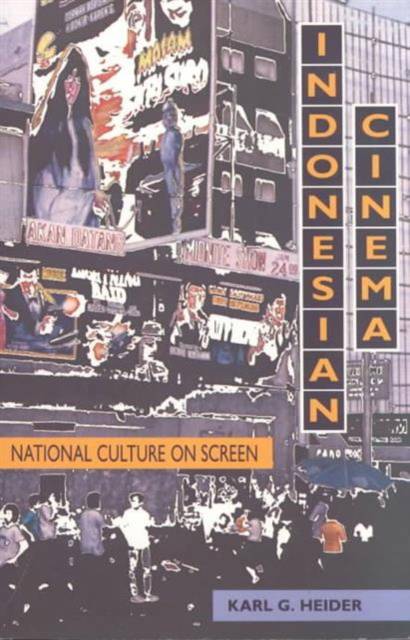
- Afhalen na 1 uur in een winkel met voorraad
- Gratis thuislevering in België vanaf € 30
- Ruim aanbod met 7 miljoen producten
- Afhalen na 1 uur in een winkel met voorraad
- Gratis thuislevering in België vanaf € 30
- Ruim aanbod met 7 miljoen producten
Zoeken
Omschrijving
A film-goer accustomed to the typical Hollywood movie plot would feel uneasy watching an Indonesian movie. Contrary to expectations, good guys do not win, bad guys are not punished, and individuals do not reach a new self-awareness. Instead, by the end of the movie order is restored, bad guys are converted, and families are reunited. Like American movies, Indonesian films reflect the understandings and concerns of the culture and era in which they are made. Thus Indonesian preoccupations with order and harmony, national unity, and modernization motivate the plots of many films. Cinema has not traditionally been within the purview of anthropologists, but Karl Heider demonstrates how Indonesian movies are profoundly Indonesian. Produced in the national language by Indonesians from various regions, the films are intended for audiences across the diverse archipelago. Heider examines these films to identify pan-Indonesian cultural patterns and to show how these cultural principles shape the movies and, sometimes, how the movies influence the culture. This anthropological approach to Indonesian film opens up the medium of Asian cinema to a new group of scholars. "Indonesian Cinema" should be of interest to social scientists, Asianists, film scholars, and anyone concerned with the role of popular culture in developing countries.
Specificaties
Betrokkenen
- Auteur(s):
- Uitgeverij:
Inhoud
- Aantal bladzijden:
- 160
- Taal:
- Engels
Eigenschappen
- Productcode (EAN):
- 9780824813673
- Verschijningsdatum:
- 1/05/1991
- Uitvoering:
- Paperback
- Formaat:
- Trade paperback (VS)
- Afmetingen:
- 155 mm x 234 mm
- Gewicht:
- 240 g

Alleen bij Standaard Boekhandel
+ 45 punten op je klantenkaart van Standaard Boekhandel
Beoordelingen
We publiceren alleen reviews die voldoen aan de voorwaarden voor reviews. Bekijk onze voorwaarden voor reviews.











